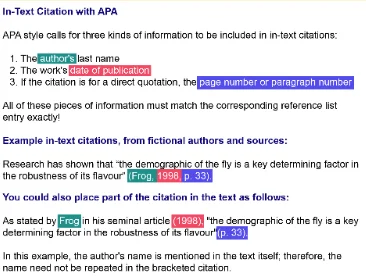How to Write a TV Show Title in an Essay: In APA, MLA, and more

Precision and adherence to formatting styles are paramount in the academic writing arena. One often overlooked aspect is how to write a TV show title within an essay while following specific style guidelines, such as APA, MLA, and more.
Mostly, this guide will illuminate the importance of proper formatting and how to incorporate captivating TV show titles into your essays seamlessly. It ensures your writing is academically sound and engaging for your readers.
Now, let’s dive into the nuances of formatting TV show titles in different styles, ensuring your essays shine clearly and professionally.
Basic Rules for TV Show Title Formatting
1. Capitalization rules

Regardless of the formatting style (APA, MLA, etc.), always capitalize the first and last words of the TV show title. For example, in the title “Breaking Bad,” both “Breaking” and “Bad” would be capitalized.
Major words within the TV show title should also be capitalized. These include nouns, verbs, adjectives, and adverbs. In “Game of Thrones,” “Game” and “Thrones” are major words and should be capitalized.
In most formatting styles, small words like conjunctions (e.g., “and,” “or”), prepositions (e.g., “in,” “on”), and articles (e.g., “the,” “a”) are not capitalized unless they are the first or last words of the title. For example, “The Office” follows this rule.
2. Use of Italics
Using italics correctly for TV show titles in your essays is crucial to distinguish them from the rest of the text. Here’s when and how to use italics:
When to Use Italics:
- Total Titles: Italicize the full title of a TV show when mentioned in your essay. For example, “Friends” should be written as Friends.
- Episode Titles: Italicize individual episode titles when discussing specific episodes within the TV show. For example, “The One with the Prom Video” from Friends.
- Series Names: When you refer to the name of the TV series as a whole, it should also be italicized. For example, “The overarching storyline in Game of Thrones is captivating.”
- Titles within Titles: If a TV show title appears within the title of another work, italicize both. For example, “The Simpsons parody in Family Guy was hilarious.”
3. Using Quotation Marks
Quotation marks are used for specific instances when referencing TV show titles in your essays. So, when do you use quotation marks?
Episode Titles: Use double quotation marks to enclose the titles of individual TV show episodes, like “The One with the Prom Video” from “Friends.”

If a character within a TV show quotes something or if you’re discussing dialogue from the show, use single quotation marks inside double quotation marks.
4. Punctuation and TV Show Titles
When it comes to punctuation and TV show titles in your essays, it’s essential to handle them correctly for clarity and consistency:
Punctuation marks that are part of the TV show’s title should be included. For example, “Grey’s Anatomy.”
When using a TV show title at the end of a sentence, the ending punctuation (such as a period or comma) comes after the title. For instance, “I enjoy watching ‘Breaking Bad’.”
Special characters and symbols within TV show titles should be retained as they appear in the original title.
For example, “Law & Order: SVU” should be written exactly as shown, including the ampersand (&).
Tips when Incorporating TV Show Titles in Essay Text
Proper Integration
Properly integrating TV show titles into your essay is essential for a seamless and grammatically correct presentation. To achieve this:
Introduce the title with a clear context, such as “In the popular TV show ‘Breaking Bad,’…”
Ensure that the title is grammatically integrated into your sentence structure. For example, “The characters of ‘Friends’ exhibit various personality traits.”
Verb Tense and TV Show Titles
Matching verb tense with the timing of TV show titles is essential to maintain consistency and clarity in your writing:
Use the present tense when discussing events or actions in the TV show. For example, “In ‘The Office,’ Jim pranks Dwight.”
Use the past tense when referring to events or actions within the show. For instance, “In the last episode of ‘Breaking Bad,’ Walter White faced a crucial decision.”
Citing TV Shows in Different Citation Styles
MLA Format
Structure of the citation: In an MLA citation, include the TV show’s title in italics, the season and episode number (if applicable), the director’s name, the production company, and the broadcast year. For example: “Breaking Bad, created by Vince Gilligan, AMC, 2008-2013.”
In-text citations: In MLA, parenthetical in-text citations should include the title of the episode or TV show in quotation marks.
APA Format

Citing TV shows in APA style: In APA, reference TV shows as part of the broader category of audiovisual materials. Include the title in italics, the production company, and the year. For example: “The Crown, Left Bank Pictures, 2016-present.”
Including TV show titles in the reference list: In your reference list, TV show titles should be italicized, and the format should follow APA guidelines for audiovisual materials.
Chicago Style
In Chicago style, you can use footnotes or endnotes to cite TV shows. Include the title in italics, the episode title (if applicable), the production company, and the year. In your bibliography, list the TV show similarly.
Common Mistakes to Avoid when Writing Film Titles
When writing film titles, there are common mistakes that writers should avoid to maintain clarity and accuracy in their work:
Incorrect Capitalization
One of the most prevalent errors is failing to capitalize words appropriately within film titles. Writers may capitalize minor words like prepositions or articles when they should not be.
For example, writing “The Lord of The Rings” instead of “The Lord of the Rings” is a common mistake.
Misuse of Italics or Quotation Marks
It is essential to use either italics or quotation marks consistently, depending on your style guide. Mixing them or omitting them altogether can lead to confusion.

For instance, writing “Harry Potter and the Prisoner of Azkaban” instead of “Harry Potter and the Prisoner of Azkaban” or “Harry Potter and the Prisoner of Azkaban” is incorrect.
Inconsistent Formatting
Ensuring uniformity in formatting is crucial. Writers sometimes use different styles for the same film title throughout their work, which can be distracting. Consistency is key.
Ignoring Special Characters
Some films include special characters or symbols in their titles, such as “&” or “-” (“Men in Black” or “Spider-Man”). Neglecting these characters can result in inaccuracies.
Omitting Necessary Details
Failing to provide additional details like release years or directors for clarity can be a mistake. For example, “The Matrix” could refer to the original 1999 film or its sequels.
Improper Punctuation
Please place punctuation marks within film titles, such as commas or colons, to avoid misunderstandings. Writers should follow the proper punctuation rules for titles.
Incomplete Titles
Abbreviating film titles without clear context can confuse readers. For example, “The Empire Strikes Back” should not be shortened to “Empire Strikes Back” without proper introduction.
Conclusion
Understanding how to format and integrate TV show titles in your essays is vital for precise and consistent writing. Proper capitalization, italics or quotation marks, verb tense, and citation styles are crucial.
Avoiding common mistakes, such as inconsistent formatting or ignoring special characters, ensures accuracy.
As you navigate the world of TV show titles in academic writing, remember to adhere to the style guide you use, whether it’s MLA, APA, or Chicago.
You not only maintain academic integrity but also enhance the readability and professionalism of your essays. So, use TV show titles effectively to elevate the quality of your academic work.

Josh Jasen or JJ as we fondly call him, is a senior academic editor at Grade Bees in charge of the writing department. When not managing complex essays and academic writing tasks, Josh is busy advising students on how to pass assignments. In his spare time, he loves playing football or walking with his dog around the park.




